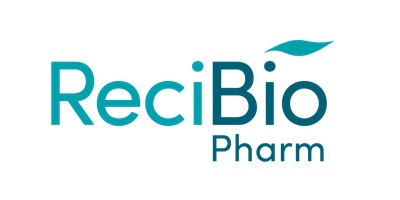World Pharma Today’s latest interview centers on the groundbreaking partnership between ReciBioPharm and Hongene, focused on advancing gene-editing drug development and manufacturing.
The companies share a vision to make high-quality, accessible gene-editing solutions available to patients, driving advancements in life-saving treatments.
1. Can you provide details on the partnership between ReciBioPharm and Hongene?┬Ā
This partnership between Hongene and ReciBioPharm is ultimately centred around enhancing gene editing drug development and manufacturing capabilities for our customers.
Companies developing these therapies require essential components such as plasmids, mRNA and single-guide RNA (sgRNA) to be formulated into lipid nanoparticles (LNPs), and then filled into the final drug product.
Together, we will leverage HongeneŌĆÖs new sgRNA synthesis technology to improve both the quality and yield of this critical component. The complete gene editing CDMO solution will be delivered from the ReciBioPharm facility spanning 80,000 sq. ft. in Watertown, Massachusetts.
By carrying out this entire process under one roof, weŌĆÖre able to offer end-to-end services to our gene-editing customers, covering everything from sgRNA synthesis to LNP formulation and final fill-finish.
2. How does integrating HongeneŌĆÖs unique sgRNA synthesis technology into ReciBioPharm’s facilities make gene editing drug manufacturing more efficient and help solve supply and logistical challenges?
sgRNA is a vital component of gene editing drugs. By bringing its production in-house with HongeneŌĆÖs technology within ReciBioPharmŌĆÖs facility, we can reduce the supply chain burden on our customers and effectively streamline their development and manufacturing processes.
Typically, companies developing gene editing therapies would be required to work with multiple CDMO partners to access all necessary services. For example, they might have come to ReciBioPharm for the plasmid, mRNA, LNP formulation and fill-finish but they would need to go to another vendor to get the sgRNA.
This partnership with Hongene eliminates this extra step, bringing the complete service in-house so that customers can sign one contract, one quality agreement, have a single project manager and overall, one unified experience for all of their manufacturing phases.
Hongene is a leading global supplier of raw materials for sgRNA and mRNA manufacturing and is renowned for its exceptionally high quality. Since the majority of raw materials for these drugs come from Hongene, weŌĆÖre able to simplify supply chain logistics by consolidating sourcing.
Combined with HongeneŌĆÖs advanced sgRNA manufacturing technology, weŌĆÖre able to provide customers with a final product of even higher quality and purity.
3. What are the future goals for this partnership in the gene-editing field?
While our immediate priority is to ensure the success of our gene-editing customers, both Hongene and ReciBioPharm recognise the potential for further collaboration in other areas of business in the future, including other spaces such as mRNA and oligonucleotide therapeutics.
Fortunately, HongeneŌĆÖs sgRNA technology integrates seamlessly with our existing infrastructure and capabilities. Our Watertown facility already has the appropriate reactors, chromatography, TFF and lyophilisation equipment running for other projects.
Our teams also have extensive experience and expertise in similar areas of manufacturing and the equipment fits within the existing footprint of our facility and technology offerings.
4. Can you provide a brief overview of the methods used to perform sgRNA manufacturing?
The sgRNA manufacturing process begins with fragment oligonucleotides provided by Hongene. These are then joined together using an enzyme called ligase to produce the full length sgRNA. This sgRNA is then purified to make it ready for assembly into the gene-editing drug.
This entire process of synthesis sgRNA, plasmid, mRNA, LNP formulation and fill-finish all takes place under one roof at ReciBioPharmŌĆÖs Watertown facility.
Impurities are a major challenge with traditional sgRNA manufacturing. The process involves very long molecules with numerous synthesis steps, creating many opportunities for impurities to form. Typically, these impurities are difficult to control during synthesis and challenging to remove during the purification process.
HongeneŌĆÖs ligation technology addresses this issue by using shorter oligonucleotides as raw materials. This means there are fewer synthesis steps and opportunities for impurities to form during their synthesis. When these shorter oligonucleotides are joined with ligase, they form the entire length sgRNA with minimal formation of new impurities.
We are able to achieve purities of over 90% for sgRNA using the ligation process. For traditional synthesis, it can be a challenge to even achieve 80% purity with consistent batch-to-batch quality.
5. What attracted ReciBioPharm to Hongene’s technology, and how will this new service benefit your clients?
Hongene has a strong reputation for its experience and expertise in nucleic acid chemistry, which combined with its advanced sgRNA technology, makes it an ideal partner for this venture.┬Ā
Harnessing these capabilities, weŌĆÖre able to offer a truly differentiated offering compared to traditional sgRNA synthesis. By integrating the final step of the sgRNA manufacturing process into the ReciBioPharm facility in Watertown, we can further benefit sponsor companies located in the US.
The initial conversations began around a year ago when Hongene visited ReciBioPharmŌĆÖs Watertown facility to explore a potential collaboration. These discussions evolved naturally over time, driven by a shared vision for providing outstanding products, services and value to our customers at reasonable prices, ultimately aiming to improve patient access to life-saving medicines.
6. When will you begin to manufacture gene-editing products using HongeneŌĆÖs new technology?
We are currently finalising the technical aspects of integrating HongeneŌĆÖs technology into our manufacturing process and actively engaging with customers to understand their needs and timelines.
While a typical gene-editing program varies in length from start to completion, we aim to be fully ready to support our customers as quickly as possible.┬Ā





















